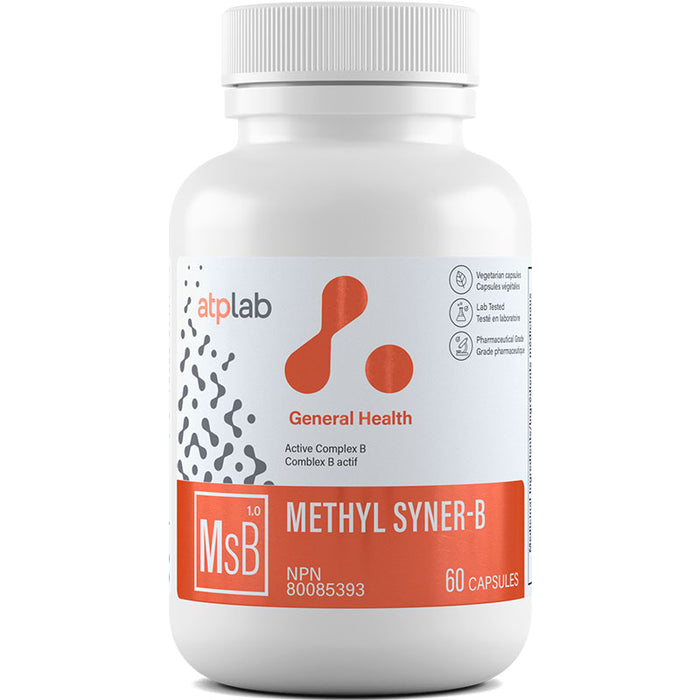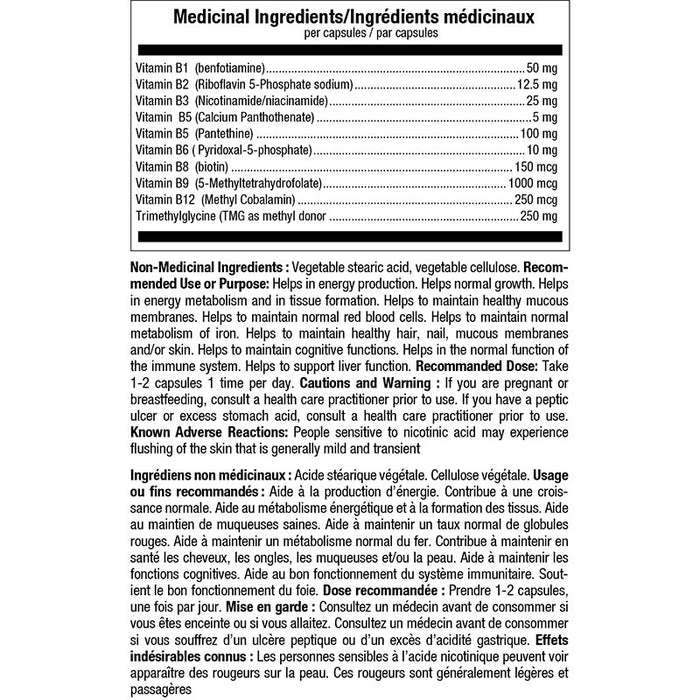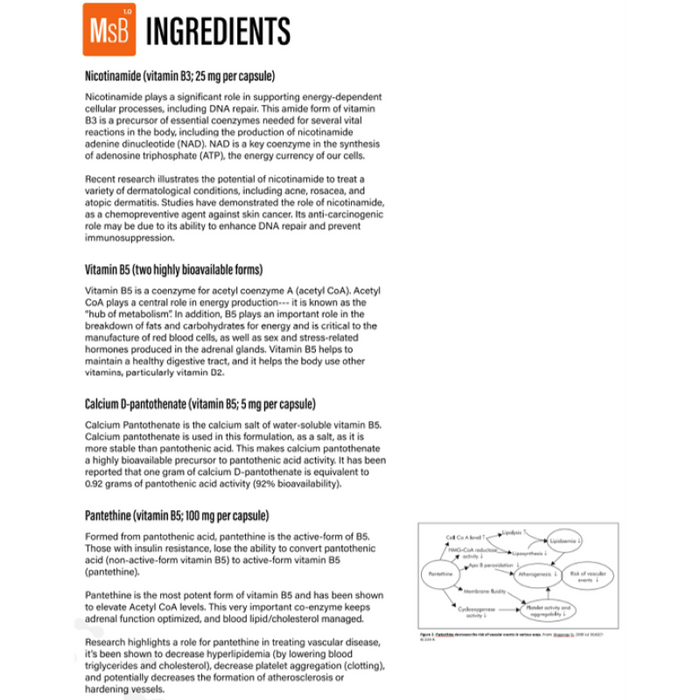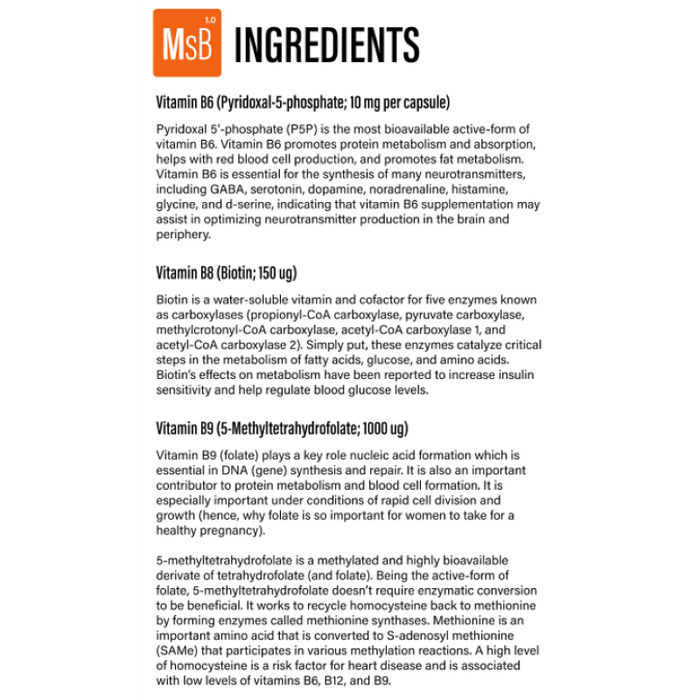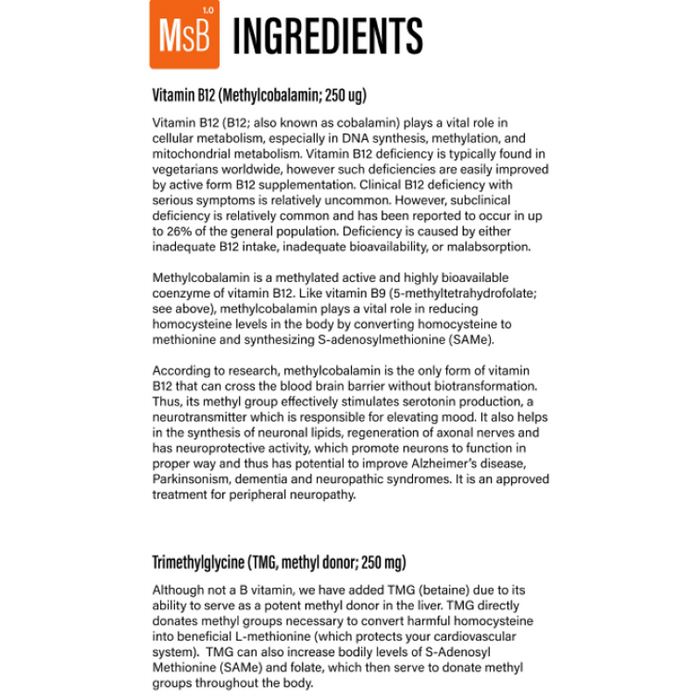
ATP Methyl Syner-B is a novel and complete active-form B complex vitamin supplement, formulated to optimize methylation pathways and maximize vitamin B bioavailability.
- B complex vitamins are a group of water-soluble vitamins that exist together in many food sources
- B vitamins act as essential coenzymes in most of the enzymatic processes that dictate healthy cellular physiological functioning
ATP Methyl Syner-B contains only science-backed active-form B vitamins. 'Active-form' means that our product is formulated using only bioavailable B vitamins and coenzymes which the body can utilize immediately. Non-active-form B vitamins depend on enzymatic processing and methylation before they become 'active.' This can be a problem for many, where enzymatic and methylation processes may be sluggish due to environmental toxins, disease, poor diets, B-vitamin deficiencies, and genetic mutations.
Methylation is an ongoing daily process that helps repair DNA, reduce homocysteine levels (an unhealthy compound produced in the body that can damage the cardiovascular system), recycles molecules needed for detoxification, keeps inflammation down, and supports a stable mood. To optimize methylation you need optimal daily levels of highly bioavailable B vitamins. Without adequate bioavailable B vitamins, the methylation process breaks down, putting you at higher risk for deficiency and many diseases.
Vitamin B deficiencies are on the rise!
Unfortunately, even in developed countries, many people's diets don't consistently provide adequate daily amounts of B-vitamins. This is due to several environmental factors including the prevalence of industrial over-cultivation and depleted soil. Over-cultivation robs the soil of magnesium and trace minerals that are essential for the plants to generate B-vitamins. To add insult to injury, ingestion of processed foods, food allergies and gut health issues (which are also on the rise) all promote subclinical and clinical vitamin B deficiencies.



